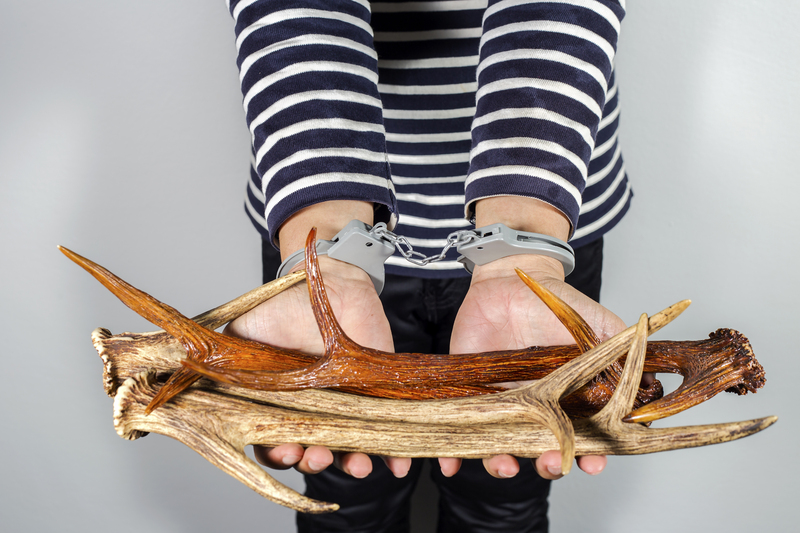Navigate Options for Getting Rid of Unwanted Chargers
Are you tired of tangled cords and drawers overflowing with phone and laptop chargers that no longer serve a purpose? With technology evolving at lightning speed, it's no surprise that most of us end up with a collection of outdated or unwanted electronic chargers. But how can you responsibly and efficiently get rid of these unwanted chargers without harming the environment or missing out on potential value? In this comprehensive guide, you'll find a variety of eco-friendly, convenient, and even profitable ways to manage, donate, recycle, or upcycle your excess chargers. Read on to learn how to declutter and make a positive impact!
Why You Should Not Throw Chargers in the Trash
Before you dispose of your unwanted chargers, it's important to recognize why throwing them in the garbage is not the best idea. Chargers contain metals and plastics that can leach toxic substances into the environment if placed in landfills. Additionally, improper disposal contributes to the ever-growing problem of electronic waste (e-waste), which poses serious health and environmental risks worldwide. Recycling or reusing them is not just a responsible choice--it's essential for a sustainable future.
Understanding the Core Options for Disposing of Old Chargers
- Recycling: The most environmentally conscious solution, ensuring materials are safely separated and reused.
- Donation: Extend the lifespan of your chargers by passing them on to someone who can use them.
- Selling: Make some extra cash or offer at a low price to someone who needs a compatible charger.
- Repurposing/Upcycling: Give your old chargers a creative second life.
- Returning to Manufacturer: Some brands have take-back programs for used electronics and accessories.

Recycle Unwanted Chargers the Right Way
How to Find Charger Recycling Centers & Programs
The safest and most environmentally friendly way to dispose of unwanted chargers is by recycling them at specialized e-waste recycling centers. Here's how you can find the right place:
- Local Electronics Stores: Large retailers like Best Buy, Staples, and local electronic stores often have e-waste recycling bins.
- Municipal Recycling Centers: Check your city's or county's website for e-waste collection points and upcoming recycling events.
- National Recycle Programs: Organizations like Call2Recycle and Earth911 provide easy search tools for finding nearby drop-offs.
- Mail-In Recycling: Some recycling services offer mail-in options. Pack your chargers and send them to certified facilities.
Pro Tip: Always separate your chargers from other household e-waste, bag any cords neatly, and remove any batteries if applicable.
Are Chargers Recyclable?
Most charging cables, power adapters, and connectors are made from recyclable metals (copper, steel), and plastics. Specialized centers have the tools to break down, sort, and process these materials. Never include chargers in your regular recycling bin, as curbside recycling typically cannot handle electronics.
Benefits of Recycling Old Chargers
- Protects the environment: Prevents dangerous toxins like lead and cadmium from polluting the soil and water.
- Conserves resources: Recovers valuable metals for new products, reducing need for additional mining.
- Supports sustainable industry: Boosts green jobs and responsible waste management.
Donate Chargers to Give Them a Second Life
Where and How to Donate Unwanted Chargers
Many devices--especially phones, tablets, and laptops--end their lives not because of hardware issues but because of outdated or missing chargers. By donating your unused chargers, you can make a difference for:
- Local Schools and Libraries: Many educational facilities keep a stock of extra chargers for loan or emergencies.
- Nonprofits and Community Centers: Organizations that distribute refurbished electronics to students or low-income families often accept chargers.
- Thrift Stores: Places like Goodwill and Salvation Army may accept and sell working chargers.
- Online Communities: Use neighborhood platforms (Nextdoor, Facebook Marketplace, Freecycle) to offer chargers directly to people in need, often for free.
Tips for Donating Electronic Chargers
- Test chargers before donating. Only donate safely functioning chargers to prevent device damage.
- Label chargers, if possible, to indicate compatibility (e.g., "USB-C," "iPhone," "Samsung," "Laptop model XYZ") for convenience.
- Bundle with matching cables or adapters for increased usefulness.
Who Benefits from Your Donation?
Your contribution may mean the difference between a device collecting dust and a student being able to complete their homework. It's a small gesture with a big impact--especially as remote working and learning have increased digital dependency.
Sell Your Extra Chargers: Make Some Cash or Help Your Community
Best Ways to Sell Old Chargers
Some unwanted chargers may still hold value, especially if they belong to popular or premium brands (Apple, Samsung, Lenovo, etc.). To get started:
- Online Marketplaces: List on eBay, Craigslist, Facebook Marketplace, or Mercari. Clean the chargers, upload clear photos, and provide model numbers.
- Specialized Websites: Platforms like Decluttr, Gazelle, or BuyBackWorld purchase used electronics and accessories.
- Local Exchanges: Offer them at garage sales, electronic swap meets, or through classified ads.
Be honest about the condition and include any product details. Even broken chargers can be bought for refurbishing and parts, so don't hesitate to check "for parts/not working" options.
How Much Are Old Chargers Worth?
Most used chargers fetch modest prices--between $2 and $10 for common models. However, rare or discontinued chargers for vintage devices, laptops, or cameras can command much higher prices among collectors or tech enthusiasts. Proper research and accurate descriptions help maximize your chances of a successful sale.
Creative Repurposing and Upcycling Ideas for Outdated Chargers
Turn Unwanted Chargers Into Useful Household Items
If you're handy or imaginative, old chargers can be given a new lease on life. Here are a few ways to upcycle:
- Cable Management: Use the cord or adapters to tie up other cords or bundles--no more tangles!
- DIY Crafts: Use wires and small components in wearable electronics, art projects, or school science experiments.
- Backup Chargers: Keep a spare at work, in your car, or travel bag "just in case."
- Learning Tools: Disassemble and use for STEM learning--see what's inside and understand how chargers work (with care!).
Warning: Always ensure cords and cables are disconnected from power and devices before repurposing or experimenting.
Return Programs: Send Chargers Back to the Manufacturer
Which Brands Offer Charger Recycling or Take-Back?
Major technology brands recognize their responsibility in reducing e-waste. Many now provide take-back or recycling programs specifically for accessories like chargers. Here's a quick list:
- Apple: Offers in-store and mail-in recycling for all branded products, including chargers and cables.
- Samsung: Has an electronics recycling program with drop-off locations in many countries.
- Dell & HP: Accept chargers and power cords in their recycling programs, some with free shipping labels.
- Google & Microsoft: Offer device and accessory take-back--for details, check your regional website.
Check manufacturer websites for instructions and eligibility--some offer discounts on new products for recycling your old ones!
How to Prepare Chargers for Disposal or Donation
Proper Steps Before Letting Go
- Clean off any dirt or grime with a slightly damp cloth--no harsh chemicals.
- Secure any loose cables with twist ties or cord organizers.
- Group by type or brand to simplify sorting for recycling or donation staff.
- Remove personal labels or data stickers, if any.
- Test functionality, where possible, to separate charged from non-charging units.
Stay Safe and Responsible
If a charger is extremely frayed, melted, or short-circuited, handle with caution. If it's leaking or burnt, treat it as hazardous waste and bring it to a dedicated disposal center instead of a regular donation or recycling bin.

FAQs: Responsible Disposal and Management of Chargers
Can I throw phone chargers in my household trash?
No. It's important to avoid putting any electronic accessories, including chargers, in the general waste bin due to the risk of environmental contamination.
Are charger cords and adapters considered e-waste?
Yes. All unused or broken chargers, power bricks, and cables are classified as electronic waste and should be managed accordingly.
What should I do with chargers for devices I no longer have?
Recycle, donate, or sell them. Many people still use older devices or need backup chargers. Someone else may benefit--a good deed with no extra effort!
Can old chargers be recycled with regular household recyclables?
No. Most municipal recycling programs do not process electronics; instead, use a certified e-waste center.
Are there laws about throwing away electronics?
Many US states, EU countries, and Asian regions now prohibit discarding electronic waste in regular trash in order to encourage recycling.
Conclusion: Adopt the Best Option for Your Unwanted Chargers
Whether your charger is for a phone from years past or a laptop you no longer own, getting rid of unwanted chargers responsibly protects the environment, helps others, and even offers financial benefit. As technology advances, the right disposal methods matter more than ever. By navigating your options--recycling, donating, selling, repurposing, or returning to manufacturers--you're making a conscious choice for a cleaner, safer, and more sustainable future.
- Recycle with authorized e-waste centers or mail-in programs
- Donate to extend their useful life
- Sell to someone who needs them
- Repurpose creatively at home or for crafts
- Return through brand take-back programs
By following this practical guide, you'll ensure your old chargers are handled with care, whether you hope to clear out clutter, help others, or contribute to a greener planet. Navigate your unwanted charger options wisely!